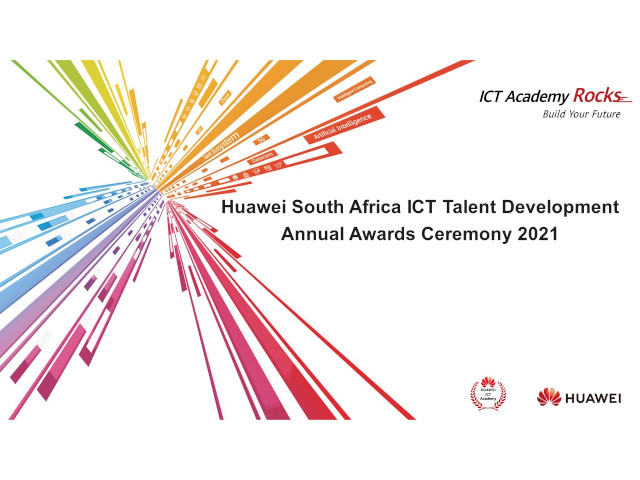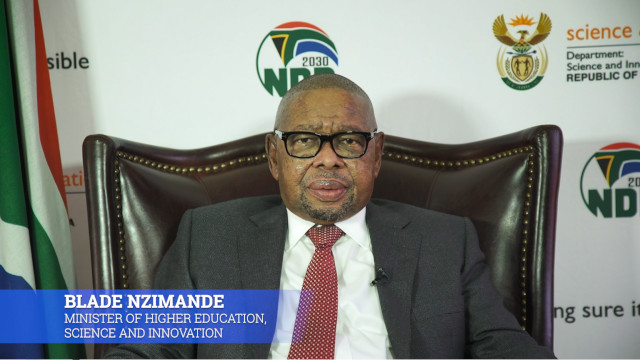Huawei South Africa ICT Talent Development Annual Awards underline importance of 4IR tertiary education
By Staff Writer 15 December 2021 | Categories: sponsored content
With the Fourth Industrial Revolution (4IR) already having a profound impact on almost every aspect of our lives, it’s critical that the South African tertiary education sector empower graduates with the skills they need to compete in the new world of work. That importance was underlined at the Huawei South Africa ICT Talent Development Annual Awards, which took place virtually on 10th of December 2021.
The awards recognise the top students and instructors from Huawei’s ICT Competition and its ICT Academy. The programme is aimed at driving the development of ICT talent for industry development and digital transformation and is a crucial element of Huawei’s talent ecosystem which seeks to address the skills shortage in the sector.
The Huawei ICT Academy in South Africa, is a non-profit partnership programme that authorises universities and colleges to deliver certification courses to their students in the latest technologies of 5G, Cloud, AI and IoT. Huawei has partnered with 67 South Africa universities and TVET colleges to date.
Minister of Higher Education, Science and Innovation, Dr Blade Nzimande stressed how important programmes like the Huawei ICT Academy are.
“Under my ministry, we have developed innovation skills strategies that support existing industries like agriculture and mining and also aid in the creation of new industries, such as those linked to the green economy,” he said. “These strategies place a premium on building partnerships between my two departments, education and training institutions, and the business sector.”
Mr Buti Manamela, Deputy Minister of Higher Education, Science and Innovation stressed how important it is that these kinds of initiatives be accessible to all South Africans.
“The task of empowering people with the skills that bridge the digital divide requires partnerships with government, educational institutions, and communities,” he said. Digital technology is advancing at an incredible pace around the world, but it’s not happening evenly. When it comes to making training and other opportunities available, it’s important to make sure that young people and women, especially in rural areas, are exposed to them.”
Phinith Chanthalangsy Head of Unit, Programme Specialist Social and Human Sciences Sector, who delivered a speech on behalf of Dr Lidia Brito, UNESCO regional director for Southern Africa, underlined just how important the skills developed by the Huawei ICT Academy will be for ensuring that South Africa is able to compete successfully when it comes to 4IR.
“The education system has a huge and unique role to play in accompanying the transition to the future of work,” he said. “But in order for it to play that role, our traditionally mono-disciplinary educational systems must evolve to be multidisciplinary.”
As Derrick Zhang, VP of Southern Africa Enterprise Business Department, Huawei pointed out, this kind of investment could have significant dividends for the South African economy.
“The ICT sector is one of the largest contributors to South Africa’s GDP,” he said. “The total revenue increased by 2% from R238 billion in 2019 to 243 billion in 2020.”
He added that this growth has helped fuel employment, with the number of employees in the telecommunications sector growing 2.1% over the six years leading up to 2020. As technology plays an increasingly important role in our lives, this growth will only accelerate.
“All this will require increased skills,” Zhang said. “We believe investing in education is the most important way to bridge the gap in ICT talent.”
Representatives from educational institutions at the event echoed the importance of building these skills as well as providing the infrastructure needed to do so.
“I must thank Huawei South Africa for their contribution to Durban University of Technology and other South African universities,” said Prof. Keolebogile Motaung, Director, Technology Transfer & innovation, DUT. “Since 2019, we have trained 245 students as a result of this partnership and began integrating digital technologies into our academic and non-academic operations, such as online classes and registrations.”
“We’ve seen that if the infrastructure of colleges can be improved, the situation will improve,” said Robert Mojafi, Deputy Principal, Academics at Taletso TVET College. “We can be proud of the fact that, with the support of Huawei, colleges are moving to learner management systems that are pushing them towards digitalisation.”
The winners of the awards illustrated the benefits of this approach.
“The Huawei cloud track encouraged me to develop a solid ICT understanding in several other technologies, including AI and Internet of Things,” said Dickson Hove, a student at Durban University of Technology and winner in the Huawei ICT Competition.
“Through Huawei’s partnership, we were not only able to upskill our students but extend that skills development into the wider communities we serve,” said Almaine Horne Registrar, School of Occupation & Training, Eastcape Midlands TVET College, which won in the Excellent Academy category. “I’m looking forward to future engagements with Huawei to see how we can solidify the opportunities for our students and communities.”
“Initiatives like those from Huawei prove that if you provide the infrastructure to universities and colleges, we can make it,” said Edward Madoba, Lecturer, Mopani TVET College and winner in the Excellent Instructor category.
Most Read Articles

Have Your Say
What new tech or developments are you most anticipating this year?




